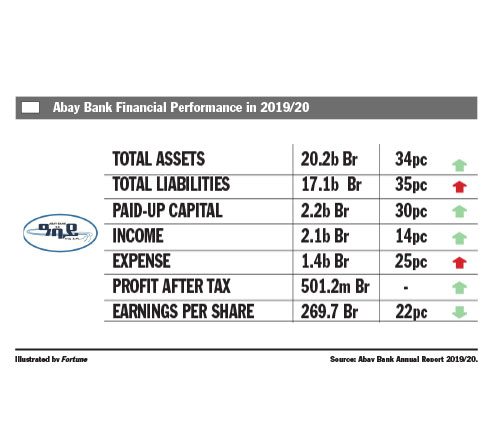
Radar | Jul 15,2023
Reppi, aka Qoshe, the capital’s half-century-old landfill, is on track to run out of dumping space within six months to a year.
It is exasperating residents living nearby as heaps of trash rise near their homes and alarming parties tasked with the management of the waste site.
This development comes years after a decision to close the dump and multiple efforts to address waste management in the capital that generates an average of 912,500tn of solid waste, which either gets recycled, burned or dumped at Reppi annually.
The Addis Abeba Solid Waste Management Agency (AASWMA) says news of Reppi filling up is false.
“The site has existed for more than four decades, and with the programmes the Agency is undertaking, it will exist for more years to come,” said Eshetu Lemma, general manager of AASWMA. “We have been taking different approaches to develop the substantially flourishing urban area with a waste-to-energy facility on the site.”
Reppie, which stretches across 36ha, was shut down in 2016 after the government’s decision to relocate dumping to Sendafa, Oromia Regional State, where a new landfill complex was being built. But after farmers there blocked dumping of any waste, Reppi was reopened.
A year after resumption of the site, a part of the Qoshe landfill collapsed on March 11, 2017, burying 30 makeshift houses and killing at least 115 people. After the landslide, the City Administration undertook a number of projects to address the negative effects of the dumpsite.
This included rehabilitation of 19ha of the dumpsite's land by a team led by Yasushi Matsufiji (Prof.) and UN-Habitat. The government of Japan also committed two million dollars to the rehabilitation programme.
Within the dumpsite, there exists a landfill gas flaring site that lies on 19 hectares, which burns methane gas. There is also the Reppi Waste-to-Energy Plant that currently burns 1,400tn of waste a day to produce electricity. The Plant produces ash waste, which is also dumped at Qoshe.
“It’s evident that the space is functioning at a maximum capacity, but the municipality is working hard to expand its efforts to stretch the lifetime of the space,” said Eshetu.
Residents living within close proximity of the dumpsite are not as optimistic. Kidist Gebru, who has lived for over three decades in front of the dumpsite and is growing more wary of being buried under a mountain of garbage by the day, is one of them.
“Recently, the situation has become aggravating, as they are pushing the waste toward the residential area,” she said.
It is not just the trash that is aggravating residents living close to the dumpsite but the qorales, informal waste collectors who scavenge for food and items such as recyclable metal.
“My neighbors had to relocate after qoralespeeled away the roof of their house, and no one said anything,” she said.
Ashenafi Wendemu is one of the qorales, as well as a resident near the dumpsite. He points out that there is growing demand for these recyclables, hence, people from all over flock there to collect the raw materials and conflict breaks out.
"In a fast growing city that wants to present itself as green, sustainable or evolving, the dirt is always brushed somewhere under the rug," said Andualem Mekonnen (PhD), an environmentalist.
He argues that the reality is more political and that there is a need to develop the future of the population around Qoshe.
"Our collective mission is to re-politicize incidents such as Qoshe and keep development agencies and government officials responsible for their deliberate historical neglect of citizens," he said.
PUBLISHED ON
Nov 09,2019 [ VOL
20 , NO
1019]

Radar | Jul 15,2023

My Opinion | Sep 06,2020

Fortune News | Apr 10,2021

Viewpoints | Jan 03,2021

Radar | Jun 07,2025

Dec 22 , 2024 . By TIZITA SHEWAFERAW
Charged with transforming colossal state-owned enterprises into modern and competitiv...

Aug 18 , 2024 . By AKSAH ITALO
Although predictable Yonas Zerihun's job in the ride-hailing service is not immune to...

Jul 28 , 2024 . By TIZITA SHEWAFERAW
Unhabitual, perhaps too many, Samuel Gebreyohannes, 38, used to occasionally enjoy a couple of beers at breakfast. However, he recently swit...

Jul 13 , 2024 . By AKSAH ITALO
Investors who rely on tractors, trucks, and field vehicles for commuting, transporting commodities, and f...

Oct 18 , 2025
The political establishment, notably the ruling party and its top brass, has become p...

Oct 11 , 2025
Ladislas Farago, a roving Associated Press (AP) correspondent, arrived in Ethiopia in...

Oct 4 , 2025
Eyob Tekalegn (PhD) had been in the Governor's chair for only weeks when, on Septembe...

Sep 27 , 2025
Four years into an experiment with “shock therapy” in education, the national moo...